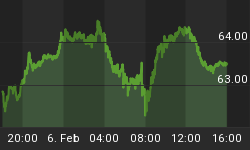In a speech at the Economics Club in Washington, Federal Reserve (Fed) Chairman Ben Bernanke warned America to save more and spend less to preserve our standard of living for the long-term. The core of his message that we must improve fiscal discipline and the quality of our education is not new; his advice will also be applicable as long as we have politicians and schools. The speech is more striking for what was not mentioned - namely the Fed's role in this process.
We know that the retirement of baby boomers poses enormous challenges. Bernanke expressed the urgency of fiscal policy reform to pave the way for either greater government revenues or lower expenses. It seems like everybody likes to talk about the need for greater savings, but no politician wants to have it take place while they are in office. The reason is simple: in the short-run, greater savings tend to come with less spending: increased savings could signal a recession.
Bernanke is not a lawmaker, he is the Chairman of the Federal Reserve. In this role and in conjunction with the Federal Reserve Board, he oversees monetary policy. Monetary policy should be primarily concerned with preserving purchasing power by setting interest rate and money supply targets. And while not mentioned in Bernanke's speech, the Fed has an enormous influence over the spending and savings habits of both consumers and government. Overly accommodating monetary policy pushed consumers into debt after the technology bubble burst. Shortsighted fiscal policy has also contributed to the poor state of the American consumer ("lower taxes get more money into consumers' pockets"), but the Fed has plenty of its own housecleaning to do before scolding politicians that they behave, well, like politicians.
In our view, the right medicine to foster savings and investments would be for the Fed to tighten money supply through higher interest rates, by imposing stricter lending standards and directly reducing money supply through market intervention. The Fed is best positioned to encourage savings and investments, to put a dampener on consumption. Small cuts in consumptions now could preserve much more painful cuts in the future.
Why doesn't the Fed prescribe his medicine rather than passing the buck to Congress? Because the economy is too leveraged, too interest rate sensitive. As consumers nowadays buy just about everything on credit and have loads of debt, higher interest rates today hit them harder than they would have twenty years ago. Indeed, the current interest rate environment has already started to deflate the housing market and has put in motion an economy that may slide into recession. Increasing interest rates sufficiently to force a cut in consumption risks inducing deflation and a depression.
While much tighter monetary policy may be the right medicine to prepare us for the demographic challenges ahead, it is not one the Fed under Ben Bernanke's leadership is likely to prescribe. In his research about the Great Depression before becoming Fed Chairman, Bernanke identified the strong dollar as one of the culprits that made the Depression more severe. He has also praised the Japanese ultra-loose monetary policy to fight deflation. Aside from preserving our standard of living in the long run, the dollar should benefit from what would amount to a radical shift in Fed policy. Right now, the US is dependent on over US$ 2 billion in inflows from overseas investors every single day, just to keep the dollar from falling versus a basket of currencies; the inflows are required to finance the current account deficit. If we were to save more, we would be less dependent on foreigners to keep the dollar afloat. However, in the absence of a clear commitment by the Fed to transform the US into a nation of savers and investors, a weaker economy is likely to be accompanied by a weaker dollar: as the economy weakens, foreigners may be less inclined to invest in the US and thus exert downward pressure on the dollar.
It comes as no surprise to us that Bernanke would tell Congress to jump over its own shadow and pass entitlement reform rather than to impose reform through monetary policy. But as Bernanke said, "...the imperative to undertake reform earlier rather than later is great." Ironically, in the absence of an agreement on entitlement reform, the politically most convenient solution is a devaluation of the dollar. In such a scenario, nominal promises can be kept, but the purchasing power of benefits erode. While this is a likely scenario, it is a risky one as side effects may include significant inflation: we cannot always count on globalization to bail us out by keeping consumer prices low.
The recent volatility in the price of gold reflects the odds that we may actually be heading towards a deflationary recession. While possible, we believe we will have lower short-term interest rates a year from today as the Fed will loosen monetary policy to give support to an ailing economy. In the months to come, it may become increasingly apparent that the dollar and its purchasing power are less important to the Fed than the pain that would be suffered by a significant portion of the population if monetary policy was too tight.
We manage the Merk Hard Currency Fund, a fund that seeks to profit from a potential decline in the dollar. To learn more about the Fund, or to subscribe to our free newsletter, please visit www.merkfund.com.















